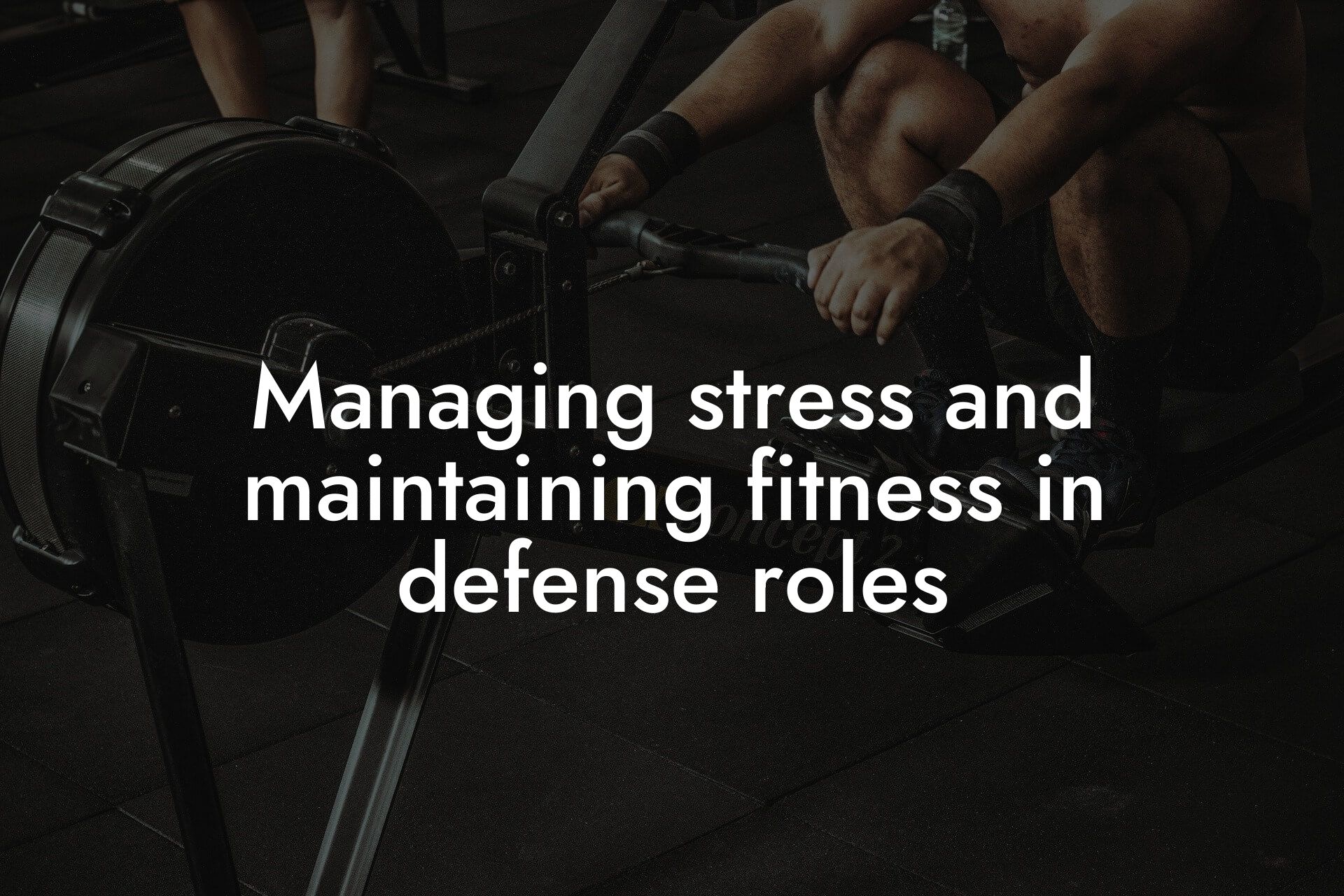As a military professional, you understand the importance of maintaining peak physical condition to perform at your best. However, the physically demanding nature of military jobs can take a toll on your bone health, leading to decreased bone density and increased risk of osteoporosis and fractures. In this article, we'll explore the importance of bone density, the risks associated with physically demanding military jobs, and provide a comprehensive guide on how to maintain bone density and reduce the risk of bone-related injuries.
Table of Contents
The Importance of Bone Density
Bone density refers to the amount of mineral matter per square centimeter of bones. Maintaining healthy bone density is crucial for overall health, as it provides structural support, protects internal organs, and enables movement. Strong bones also reduce the risk of osteoporosis, fractures, and osteopenia. In military personnel, maintaining healthy bone density is essential to perform physically demanding tasks, reduce the risk of injury, and ensure optimal performance.
Risks Associated with Physically Demanding Military Jobs
Physically demanding military jobs can lead to a range of risks that affect bone density, including:
- Repetitive stress injuries: Continuous exposure to heavy loads, repetitive movements, and high-impact activities can cause micro-fractures and bone loss.
- Overtraining: Insufficient recovery time, excessive exercise, and inadequate nutrition can lead to bone resorption and decreased bone density.
- Inadequate nutrition: A diet lacking essential nutrients, such as calcium and vitamin D, can impair bone health and density.
- Hormonal changes: Military personnel may experience hormonal fluctuations, particularly in testosterone levels, which can affect bone density.
Nutrition and Bone Density
A well-balanced diet rich in essential nutrients is crucial for maintaining healthy bone density. Key nutrients for bone health include:
- Calcium: Found in dairy products, leafy greens, and fortified foods, calcium is essential for bone mineralization and density.
- Vitamin D: Obtained through sunlight exposure, supplements, or fortified foods, vitamin D regulates calcium levels and bone metabolism.
- Protein: Adequate protein intake is necessary for muscle mass and bone health.
- Omega-3 fatty acids: Found in fatty fish, nuts, and seeds, omega-3 fatty acids support bone health and reduce inflammation.
- Other essential nutrients: Vitamin K, magnesium, and potassium also play important roles in bone health and density.
Exercise and Bone Density
Regular exercise is essential for maintaining healthy bone density. Focus on exercises that:
- Incorporate weight-bearing activities: Activities like running, jumping, and weightlifting stimulate bone growth and density.
- Engage in resistance training: Resistance exercises, such as push-ups and squats, help build muscle mass and strengthen bones.
- Incorporate high-impact exercises: High-impact activities like jumping and hopping can help improve bone density.
- Incorporate flexibility and stretching exercises: Regular stretching exercises can improve flexibility and reduce the risk of injury.
Additional Strategies for Maintaining Bone Density
In addition to a balanced diet and regular exercise, consider the following strategies to maintain healthy bone density:
- Get enough sleep: Adequate sleep is essential for bone health and recovery.
- Manage stress: Chronic stress can lead to hormonal imbalances and decreased bone density.
- Avoid smoking and excessive alcohol consumption: Both smoking and excessive alcohol consumption can negatively impact bone health.
- Consider supplements: Certain supplements like calcium, vitamin D, and omega-3 fatty acids can support bone health.
DEXA Scans and Bone Density Assessment
Regular bone density assessments are crucial for monitoring bone health and detecting potential issues early. DEXA (Dual-Energy X-ray Absorptiometry) scans are a non-invasive, painless way to measure bone density. As a military professional, consider incorporating regular DEXA scans into your health regimen to:
- Monitor bone density changes over time
- Identify potential bone health issues early
- Develop a personalized plan to maintain healthy bone density
Maintaining healthy bone density is crucial for military professionals to perform at their best and reduce the risk of injury. By understanding the risks associated with physically demanding military jobs, prioritizing a balanced diet, regular exercise, and additional strategies, and incorporating regular DEXA scans, you can take proactive steps to maintain healthy bone density and optimize your overall health. Remember, a strong body starts with strong bones.
Frequently Asked Questions
What are the risks of low bone density in physically demanding military jobs?
Low bone density is a significant concern for individuals in physically demanding military jobs, as it can increase the risk of osteoporosis, fractures, and other musculoskeletal injuries. Prolonged periods of intense physical activity, inadequate nutrition, and insufficient recovery time can all contribute to bone loss and density decline.
How does physical activity affect bone density?
Regular physical activity, especially weight-bearing and resistance exercises, can help improve bone density by stimulating bone growth and strengthening bone tissue. However, excessive or repetitive physical activity without adequate recovery time can lead to bone loss and density decline.
What are the most common bone-related injuries in military personnel?
Stress fractures, shin splints, and osteitis pubis are common bone-related injuries in military personnel, often resulting from repetitive overuse, inadequate footwear, and poor biomechanics.
Can military personnel maintain bone density while on deployment?
Yes, military personnel can take steps to maintain bone density while on deployment by prioritizing calcium and vitamin D-rich foods, staying hydrated, and engaging in regular exercise, such as bodyweight exercises, resistance band exercises, or high-impact activities like running or jumping.
What role does nutrition play in maintaining bone density?
Nutrition plays a crucial role in maintaining bone density, as a diet rich in calcium, vitamin D, and other essential nutrients is necessary for bone health. Military personnel should prioritize whole foods, such as dairy products, leafy greens, and fortified cereals, and consider supplements if necessary.
How can military personnel optimize their calcium intake?
Military personnel can optimize their calcium intake by consuming calcium-rich foods, such as dairy products, fortified plant-based milk, and dark leafy greens, and taking calcium supplements if necessary. Aim for 1,000-1,200 mg of calcium per day.
What is the recommended daily intake of vitamin D for military personnel?
The recommended daily intake of vitamin D for military personnel is 600-800 IU (International Units) per day, which can be achieved through a combination of sun exposure, dietary sources, and supplements.
Can military personnel maintain bone density with a vegetarian or vegan diet?
Yes, military personnel can maintain bone density on a vegetarian or vegan diet by prioritizing plant-based sources of calcium, vitamin D, and other essential nutrients, such as fortified plant-based milk, dark leafy greens, and whole grains.
How does sleep deprivation affect bone density?
Sleep deprivation can negatively impact bone density by disrupting hormone regulation, including the production of osteocalcin, a hormone essential for bone growth and density. Aim for 7-9 hours of sleep per night.
What are the benefits of resistance training for bone density?
Resistance training, such as weightlifting, can help improve bone density by stimulating bone growth and strengthening bone tissue. Focus on exercises that target multiple muscle groups, such as squats, deadlifts, and bench press.
Can military personnel maintain bone density with high-impact activities?
Yes, high-impact activities, such as running or jumping, can help improve bone density by stimulating bone growth and strengthening bone tissue. However, it's essential to incorporate low-impact activities, such as cycling or swimming, to reduce the risk of overuse injuries.
How can military personnel reduce their risk of osteoporosis?
Military personnel can reduce their risk of osteoporosis by maintaining a healthy diet, engaging in regular exercise, getting adequate sleep, and managing stress. Additionally, consider getting regular bone density scans and consulting with a healthcare professional.
What are the risks of osteoporosis in military personnel?
Osteoporosis can significantly impact military personnel's quality of life, increasing the risk of fractures, disability, and early retirement. Additionally, osteoporosis can compromise military readiness and effectiveness.
Can military personnel maintain bone density with bodyweight exercises?
Yes, bodyweight exercises, such as push-ups, squats, and lunges, can help improve bone density by stimulating bone growth and strengthening bone tissue. Focus on exercises that target multiple muscle groups and incorporate progressive overload.
How does stress affect bone density?
Chronic stress can negatively impact bone density by disrupting hormone regulation, including the production of cortisol, which can lead to bone loss and density decline. Engage in stress-reducing activities, such as meditation or yoga, and prioritize relaxation techniques.
What are the benefits of flexibility exercises for bone density?
Flexibility exercises, such as stretching and yoga, can help improve bone density by increasing flexibility, reducing muscle tension, and promoting relaxation. Incorporate flexibility exercises into your routine, focusing on exercises that target major muscle groups.
Can military personnel maintain bone density with low-impact activities?
Yes, low-impact activities, such as cycling or swimming, can help improve bone density by stimulating bone growth and strengthening bone tissue. Low-impact activities can be especially beneficial for military personnel with joint injuries or chronic pain.
How does smoking affect bone density?
Smoking can negatively impact bone density by reducing bone growth, increasing bone loss, and compromising bone health. Quitting smoking can significantly improve bone density and overall health.
What are the benefits of bone density scans for military personnel?
Bone density scans can help military personnel identify bone loss and density decline early, allowing for prompt intervention and prevention of osteoporosis and related injuries. Regular bone density scans can also monitor the effectiveness of bone health strategies.
Can military personnel maintain bone density with nutritional supplements?
Yes, nutritional supplements, such as calcium and vitamin D, can help support bone health and density. However, always consult with a healthcare professional before adding supplements to your routine.
How does age affect bone density in military personnel?
Age can negatively impact bone density in military personnel, as bone loss and density decline accelerate with age. Prioritize bone health strategies, such as regular exercise, proper nutrition, and adequate sleep, to maintain bone density as you age.
What are the benefits of consulting with a healthcare professional for bone density?
Consulting with a healthcare professional can help military personnel develop personalized bone health strategies, receive guidance on nutrition and exercise, and monitor bone density and overall health.
Here are some related articles you might love...
- Nutrition strategies for maintaining energy in the field
- Managing stress and maintaining fitness in defense roles
- How to prevent injury through physical fitness in the military
- Balancing military duties with personal fitness goals
- Quick workouts for military professionals during downtime
- The role of DEXA scans in military health assessments
- The impact of body composition on tactical performance
- How to maintain fitness during deployment
- The importance of physical fitness for military readiness
Zak Faulkner
Zak Faulkner is a leading authority in the realm of physical health and body composition analysis, with over 15 years of experience helping professionals optimise their fitness and well-being. As one the experts behind Tano Performance Group, Zak has dedicated his career to providing in-depth, science-backed insights that empower clients to elevate their physical performance and overall health.
With extensive knowledge of DEXA technology, Zak specializes in delivering comprehensive body assessments that offer precise data on body fat, muscle mass, bone density, and overall physique. His expertise enables individuals to make informed decisions and achieve their fitness goals with accuracy and confidence. Zak’s approach is rooted in a deep understanding of human physiology, combined with a passion for helping clients unlock their full potential through personalised strategies.
Over the years, Zak has earned a reputation for his commitment to excellence, precision, and client-focused service. His guidance is trusted by top professionals who demand the best when it comes to their health. Whether advising on fitness programs, nutritional strategies, or long-term wellness plans, Zak Faulkner’s insights are a valuable resource for anyone serious about taking their health and fitness to the next level.
At Tano Performance Group, Zak continues to lead our Content Team revolutionising how professionals approach their physical health, offering unparalleled expertise that drives real results.




